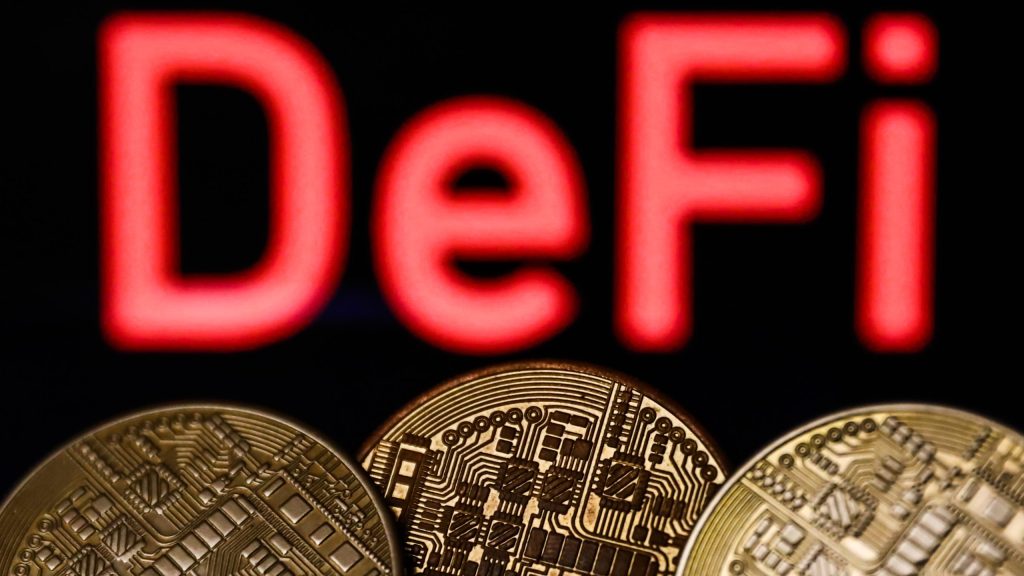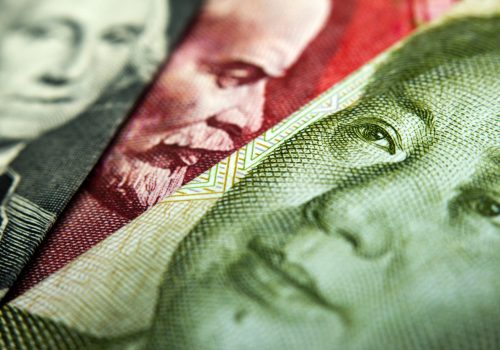Just like the rise of cryptocurrencies as a three-trillion-dollar digital asset class has evoked both enthusiasm and ire in the world of traditional finance, the next wave of technology-powered financial innovation is sparking a blend of anxiety and exuberance. It’s called decentralized finance (DeFi), referring to the use of blockchain technology to allow users to cut out intermediaries and directly lend, invest, and access capital markets.
With US President Joe Biden’s new executive order on cryptocurrencies suggesting a supportive approach to emerging financial technologies, it’s time to understand how DeFi could defy naysayers.
That people can now tap fast-growing internet lending and yield markets with little more than a digital wallet—enabling their money to work for them around the clock—opens up mainstream access to financial solutions that were once the domain of the well-heeled. Now, even Wall Street stalwarts could face disruption from code, since investors no longer need to have minimum capital levels required by consumer-protection guidelines (which often lock out the very people they were designed to protect).
To be clear, the advent of DeFi by itself does not represent a disruption to traditional financial services or products. Rather, it represents a novel approach to mutualizing financial access for those who previously found the ladder of economic mobility to be just out of reach. If they have a smartphone, blockchain-powered financial services represent a protest vote. DeFi has similar risk-reward economic features as a mutual insurance structure, which has been around for centuries. While this mutualized economic relationship may not be right for everyone, everyone’s right to participate in these new markets (with old roots) should be protected.
DeFi’s promise is based on the recognition that many aspects of our traditional brick-and-mortar economic model have reached a point of diminishing returns. In all, DeFi markets have peaked at two hundred billion dollars and are forecast to grow to eight hundred billion dollars. They typically leverage the other breakthrough innovation of the blockchain financial services era—stablecoins—as the digital thrift that makes programmable transactions possible.
Risks and rewards
Yet no emerging innovation is risk-free, especially when it comes to the movement of money. That’s why DeFi poses both a challenge and an opportunity: Can it lower the barriers to wealth creation by building a virtual Wall Street for everyone, or is this nascent sector too risky because of the potential for opacity and the lack of harmonized investor protections and disclosures? Should the onus of de-risking DeFi be borne by digital wallet providers—which, after all, are the interface for all digital-asset markets, banking, and payment services?
Either way, it represents a game-changing moment for financial inclusion and wealth creation, notwithstanding the fact that the emerging internet of value is still in its dial-up phase. Software does not take bank holidays, nor does it need costly overhead and management layers for it to perform its functions. Sure, it may be subject to bugs, cyber risk, exploits, and other potential failures. But DeFi protocols, too, are constantly evolving and becoming more sophisticated.
Perhaps more than any other area of crypto-finance, DeFi offers the best example of how harmonized market conduct, clear risk disclosures, code audits, and privacy preserving digital identity can replace adverse regulatory action as ways to preserve the integrity of a financial system. These companion innovations are being developed in lockstep with continued digital assets market growth. Indeed, the rapid emergence of these markets also comes with a public audit trail that bears witness to the continuous improvements being made in the world of open finance.
Yes, age-old cautions such as “buyer beware” and “never invest more than you are prepared to lose” are as applicable to DeFi as to traditional capital markets. But the potential offered by well-regulated DeFi outweighs the risks. These include transparency and auditability—courtesy of the superpower of public blockchains. There are also powerful advantages with price discovery, settlement speeds and finality, and the fact that software, like the internet, is always on. Armed with trusted forms of digital money and software-powered capital markets, finance can now keep pace with the modern economy.
One of the principal risks that preoccupy policymakers, regulators, and financial-compliance bodies is the inherent opacity of counterparties in a financial transaction or arrangement, who may be unknown or pseudonymous. But this is not a flaw with DeFi as much as a question for self-hosted digital wallets, which enable a “use at your own risk” version of crypto finance while enabling an open developer community to thrive. Because of their novelty, DeFi protocols may also be powered by often unproven software that may be riddled with bugs or fall prey to technological vulnerabilities.
Yet despite these challenges, the presumption of privacy and access to even basic financial services represents a healthy point of tension between emerging blockchain-based financial services and prevailing financial-compliance requirements that are designed to protect against money laundering and other crimes. But what if privacy and financial integrity were not tradeoffs? The emergence of digital identity and authentication standards alongside blockchain-based financial services can help ensure continued growth of DeFi does not come at the expense of important financial security or disclosure requirements. Indeed, there’s now a cottage industry in crypto financial integrity. Major companies are being built in blockchain forensics and analytics, as well as in tracking, tracing, and even retrieving illicit money flows denominated in various cryptocurrencies. These firms, including newer ones such as Solidus Labs—which is focused on de-risking DeFi and harmonizing market-integrity standards—form a veritable “digital fire brigade” should a crypto transaction or market go awry.
For a world with so many people on the margins of the financial system, we should be encouraged by the art of the possible through the emergence of always-on digital financial services. If DeFi and similarly new approaches to finance truly go mainstream, a person’s wealth or opportunity may no longer be determined by the postal code or country where they are born. This, in no small measure, is because the ladder of economic mobility is no longer propped up by brick and mortar—but by bits and bytes.
Dante Disparte is the chief strategy officer and head of global policy at the financial services firm Circle. He is a life member of the Council on Foreign Relations and serves on the World Economic Forum’s Digital Currency Governance Consortium. Note: Circle is a partner of the GeoEconomics Center.
Further reading
Wed, Mar 2, 2022
State of the Union: Lessons from Biden’s moves on Russia and the US economy
New Atlanticist By
Our experts weigh in on the key questions raised by US President Joe Biden's hour-long address.
Tue, Mar 1, 2022
A Report Card on China’s Central Bank Digital Currency: the e-CNY
Econographics By Ananya Kumar
China's CBDC, the e-CNY debuted at the world stage during the Olympic Games. Here's what we know so far.
Fri, Feb 18, 2022
Russia and China: Partners in Dedollarization
Econographics By Mrugank Bhusari, Maia Nikoladze
Russia has virtually stopped receiving Dollars for its exports to China. Does the US have reason to be concerned?
Image: Representation of cryptocurrency displayed on a screen in the background are seen in this illustration photo taken in Poland on November 6, 2021. Photo by Jakub Porzycki/NurPhoto/REUTERS



